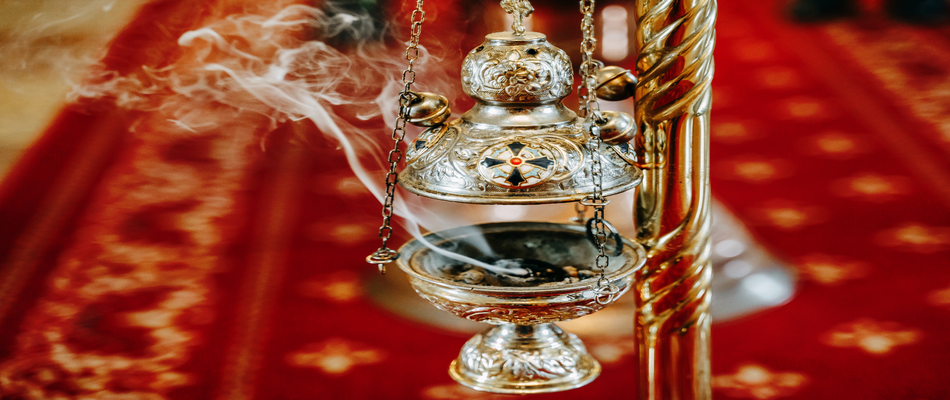
The Importance of Rituals
The word ritual is not commonly used in evangelical circles. The word sounds archaic, and thoughts of lighting candles and incense come to mind. Performing a ritual presumes an organized practice. The Oxford Dictionary plainly states that a ritual is “a religious or solemn ceremony consisting of a series of actions performed according to a prescribed order.”
The antonym of ritual is hard to define, but you know it when you see it. If a ritual includes a prescribed order, then disorder describes the opposite. For example, have you ever walked into an evangelical church and wondered, is there a purpose to the order of the service? For many evangelical churches, the answer is “maybe.” There might be a purpose to the order. However, the order is loosely held together by broad strokes. If you have ever been to a Pentecostal church the lack of discernable order is more obvious. Perhaps the following seems familiar.
Right at 10am, the worship leader welcomes everyone to church. Everyone stands up and sings four to five worship songs. Then, everyone sits down to listen to a 25-40 minute sermon. Announcements are sprinkled in at some point, but after the sermon, everyone is dismissed. Is there a discernible ritual during this typical church service? No, I do not think so. Yes, there might be an order, but the order appears to me merely pragmatic and not spiritual. The order lacks meaning.
Have you ever been to Eastern Orthodox Church? Everything seems to be ritualized. All the senses are engaged, and every sound, color, and word has meaning. The first trip to an Eastern Orthodox church service will seem overwhelming. Many evangelical churches are sterile and lack flavor, so an EO church service will seem like the church is on steroids. But I can’t help but think that perhaps the Eastern Orthodox – and Catholic churches to a lesser extent – are on to something. I think protestant churches have something to gain by taking a second look at meaningful rituals.
I can now hear some of my evangelical friends say, hold on, Shawn. We do not look like Catholic and EO churches for a reason.

I am not advocating for evangelical churches to become Catholic or EO churches. There are various theological disagreements, so I will never go back to the Catholic Church and never convert to EO. However, I think there is something to learn about the importance of rituals.
Exodus 12
After years of living for Christ and not as many years of pastoral ministry, I have seen the value of rituals. I have seen the value of creating rhythms and order in my personal life and during our Sunday Celebration. Rituals help to cultivate discipline and consistency. Rituals are constant reminders of truth. But I do not need to look to the Eastern Orthodox to see a precedent for rituals. Instead, I can look to Holy Scripture. For example, I recently read about the Exodus of Israel in my personal devotions. I have read the story of God delivering Israel from slavery in Egypt 100 times. And then it hit me; God creates a ritual for Israel to celebrate their exodus – the Passover. The Passover is a constant reminder of how God defeated Pharaoh and delivered Israel. Within the Passover celebration are several rituals with deep meaning, all pointing to Israel’s need to trust in God. When Passover begins, Jews celebrate with a seder meal. Seder is a ritual meal that includes matzo, bitter herbs, a lamb shank bone, and a mixture of fruit, nuts, and wine known as charoset, which represents the mortar Jews used while bonding bricks as slaves in Egypt. When you have a moment, read Exodus 12, and you will make several connections.
Rituals at Church
The deliverance of the people of God in the Book of Exodus is Christian history. And now, the church continues to celebrate God’s faithfulness through the Lord’s Table. The Lord’s Table is a ritual that continues to communicate the deep significance of God delivering his people. In Matthew 26, on the first day of the Passover (v. 17), Jesus gathers his disciples. The gathering would have been expected. In verses 26-31, Jesus ritualizes communion for the church. The broken bread represents the death of Christ on the cross. The wine represents a new covenant ushered in by the life and work of Jesus Christ. The apostle Paul would later emphasize the importance of communion being an intentional and predictable pattern for the church. The Lord’s Table is supposed to be a ritual full of meaning.
Of course, I only provide one example of a ritual in the local church. But I encourage local churches to connect meaning with all the rhythms of a church gathering. Allow regular practices and rhythms to reinforce the most important doctrines of the Christian faith. In the most positive sense, become a ritualistic church.
Rituals in the Home
The home is another place for rituals. We read in Deuteronomy 6,
Hear, O Israel: The Lord our God, the Lord is one. 5 You shall love the Lord your God with all your heart and with all your soul and with all your might. 6 And these words that I command you today shall be on your heart.
– Deuteronomy 6:4-6
These three verses are packed with truth. God’s people, then and now, are to love God. And then, in the next verse, parents are called by God to teach their children to do the same. We read,
You shall teach them diligently to your children, and shall talk of them when you sit in your house, and when you walk by the way, and when you lie down, and when you rise. 8 You shall bind them as a sign on your hand, and they shall be as frontlets between your eyes. 9 You shall write them on the doorposts of your house and on your gates.
– Deuteronomy 6:7-9
Teaching children the truth of God is not supposed to happen by accident. Teaching children the truth of God includes implementing several habitual practices. Praying before a meal is a habitual practice that has deep meaning. Family devotionals can become a ritualistic practice that can bear fruit. At the Powers house, when I put the kiddos to bed, I pray for them and lead them in singing the Doxology. When they are older and out of the house, they will say to their friends my dad sang (almost) every night with me. The Doxology is a ritual practice meant to instruct my children.
The Ritual, the Meaning, and the Truth
I grew up Roman Catholic, and I attended mass every Sunday. I was an altar boy going into high school. I used to go to the local grotto, light a few candles, and pray to God as a statute of the mother Mary pierced my soul (or so it seemed). So for a season of my life, I was ensconced in religious rituals. After the Lord saved me in my early 20s, I rejected everything that sniffed of a ritual. But, little did I know that when I began to read my Bible every day, I created a personal ritual. If the word ritual is a hangup, fine. You can use the term spiritual discipline.
Nonetheless, the vital thing to note is that a ritual or discipline needs to be connected to meaning. And meaning must be true. I reject many of the Catholic Church’s rituals not because they are not connected to meaning. The opposite is going on. The Catholic and Eastern Orthodox traditions are steeped with meaning. The real question is this: is the meaning of the ritual true? For example, I no longer take the Eucharist at a Catholic mass. I can appreciate the ritual. I understand the meaning undergirding the practice. But is the meaning ungirding the practice true? No, I do not think so. I do not believe transubstantiation is biblically true. Therefore, I do not participate in the Eucharist. I am not trying to pick a fight with Catholics.
I want protestants to connect the dots between the rituals they may create with meaning and truth.
In Summary
I will close with this encouragement to Christians. You do not need candles and incense to create a ritual. All you need is a Bible and a cup of coffee. Daily you can practice several disciplines that orientate your focus on Christ. The church should do the same. Every Sunday, the church should intentionally lead people to focus on Christ. An evangelical church service does not need all the “bells and whistles” of an Eastern Orthodox or Catholic church service. Conversely, it might be helpful for a local church to ritualize several practices. There might be value in taking a regular practice and connecting the practice to biblical truth. At present, Redemption Hill meets in an elementary school. Ascetically, it’s the opposite of many historic churches. But what we do between 10am – 11:30am is filled with practices and rituals to display the love of God and point people to Christ.
Soli Deo gloria
Shawn Powers is the lead pastor of Redemption Hill Church. You can follow him on Twitter at shawn_DSM.

